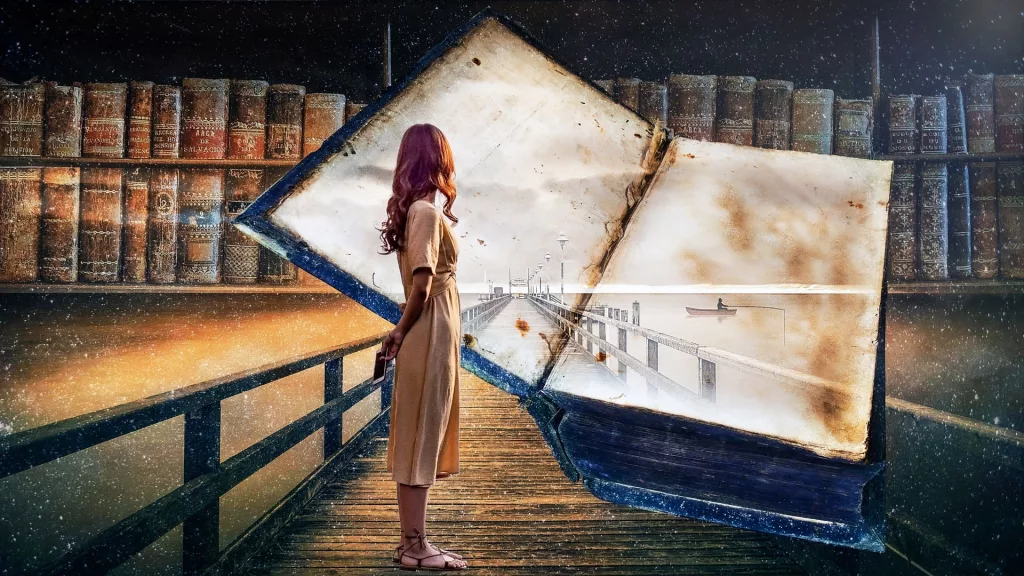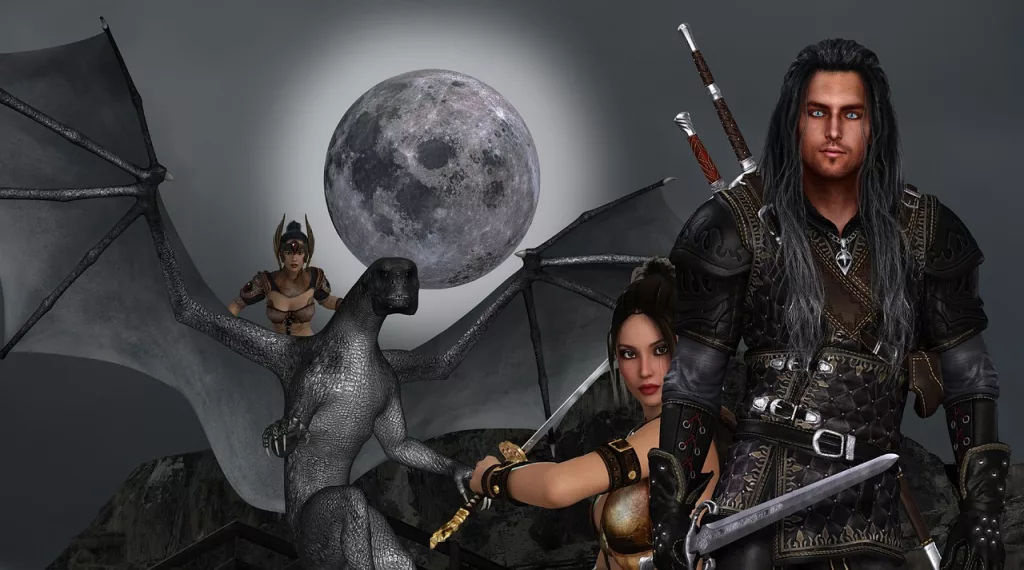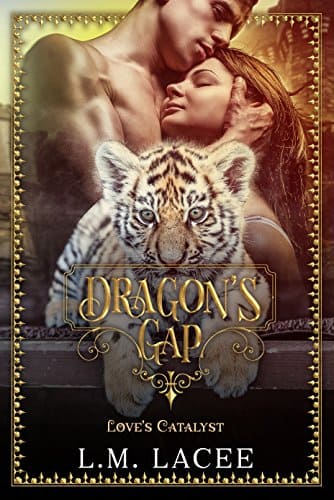
Why Is Fantasy Fiction The Number 1 Genre?
What makes fantasy fiction the number 1 genre?
For millennia, fantasy fiction literature has captivated readers’ hearts and minds all across the world. The genre transports readers to fantasy settings with magic, legendary creatures, and grand conflicts between good and evil. The strong sense of community it fosters among its readers is one of the genre’s unique features.
The distant landscapes, fantastical creatures, and magic of fantasy fiction have long captured readers’ imaginations. The people who live in these imaginative settings, however, are what really set this genre apart. Fantasy fiction frequently has engaging, strong characters that have their own distinct objectives, worries, and motivations. They provide dimension to the plot and keep readers interested because they are complex and well-developed.

Fantasy book enthusiasts frequently come together to talk about how much they adore particular settings or TV programs. The popularity of meetings and fan bases dedicated to certain fantasy series, whether through online forums or real-world conventions, is proof of the feeling of community that exists throughout the genre. Being a part of a fandom can be immensely fulfilling since it fosters a sense of connection and shared purpose. These stories attract fans because they offer an escape from reality and enable them to discover new worlds and characters they can relate to or aspire to emulate.
People’s shared experiences and relationships via these stories reflect in the community that develops around them. With those who share their appreciation and understanding, fans may talk about their favorite scenes, characters, and themes. They may discuss hypotheses and make predictions about what might occur next, forging a sense of camaraderie and enthusiasm among them.
What Is One Of The Most Widely Read Literary Genres?
Fantasy literature has captured readers’ hearts and minds worldwide for a long time, making it one of the most widely read literary genres. Fantasy fiction has fascinated readers with its complex world-building, appealing characters, and compelling plots for decades, starting with J.R.R. Tolkien’s “Lord of the Rings” and ending with J.K. Rowling’s “Harry Potter” series. But why does this genre top the charts and why is it so popular? This article will analyze the attraction of fantasy fiction and the reasons it continues to hold readers’ attention.
Fantasy fiction frequently features characters with intriguing power-related traits. They typically possess superhuman abilities that are impossible in everyday life. These characters, who range from fire-breathing dragons to element-mastery wizards, are strong and motivating. Their power is not just physical since they typically have an inner strength that helps them to overcome enormous obstacles and achieve their goals.
Fantasy fiction complexities
Fantasy fiction frequently features complex individuals from many civilizations with interesting backgrounds. They frequently reside in vividly imagined worlds with intricate histories and mythologies that influence the heroes’ attitudes and deeds. They thus feel more like themselves, replete with own cultures and viewpoints.
The main characters in N.K. Jemisin’s “The Fifth Season,” for instance, reside in a region where natural disasters routinely happen. Each character has their own perspective and takes a somewhat different approach to these calamities. They acquire a sense of depth and authenticity as a result, giving the spectator the impression that they could actually exist.
Characters in fantasy literature stand out in part due to their complexity. These characters are not flat; they each have unique objectives, worries, and reasons for doing things. These individuals aren’t just there to further the storyline; everyone of them has their own distinct personality and history.
J.R.R. Tolkien

Consider Frodo Baggins from J.R.R. Tolkien’s “The Lord of the Rings” as an illustration. Frodo is a hobbit, a little, quiet creature without exceptional physical prowess or magical skills. Yet what truly distinguishes him as a compelling character is his inner fortitude and unrelenting commitment to seeing his mission through, despite the numerous risks and challenges he must overcome. Characters in fantasy literature are compelling because they combine inner and outside strength.
Tyrion Lannister, for instance, is a complicated and multifaceted character in George R.R. Martin’s “A Song of Ice and Fire” trilogy. He is clever and brilliant, but his treatment by his family and society has left him terribly damaged. The people around the protagonist and the events unfolding outside of him affect him even as he pursues his own objectives and motivations. Despite his flaws, readers cannot help but root for him because of his complexity.
Power makes fantasy fiction popular
The power of fantasy literature to take readers to other worlds is one of the main factors contributing to its popularity. The genre frequently invents completely new planets, replete with distinct people, languages, and even beasts. These worlds are frequently complex and well-developed, giving readers an immersive experience that is hard to get in other genres. The backdrops for the stories are frequently fanciful, with enchanted forests, supernatural animals, and ancient ruins. The reader may feel as though they are present in these realms, experiencing the narrative with the characters, because to the detailed descriptions of them.
Epic in scale, with epic stakes, fantasy fiction frequently include epic battles. The stakes are enormous in fantasy literature, whether it’s a conflict between good and evil, the hunt for a great relic, or the effort to rescue the planet. This instills a sense of urgency and excitement in the narrative that keeps readers interested and invested. Readers find this sense of adventure to be incredibly alluring since they get to enjoy thrills and excitement that are frequently missing from their daily lives.
Furthermore, fantasy literature frequently examines universal topics in an original and engaging manner. Several themes found in fantasy literature are eternal and universal, including love, power, sacrifice, and redemption. However the genre offers a special prism through which to examine these problems, frequently using magical or mythological components. For instance, J.K. Rowling’s “Harry Potter” series uses magic and the idea of the “deathly hallows” to explore themes of love and sacrifice. These fanciful features provide these subjects a new perspective and can help readers relate to and understand them.
Characters in fantasy literature are frequently intriguing and powerful. These characters frequently have their own goals, concerns, and motives and are well-developed and complicated. They may be either heroes or villains, or occasionally both, which makes them more sympathetic and realistic. In the genre, underdogs frequently become great via patience, hard effort, and a little bit of luck. These personalities offer as both motivation for readers who might be battling with their own problems and aspirational role models.
The subject of love appears frequently in fantasy literature. Love takes on a new dimension in the realm of fantasy, from the epic romances of Arwen and Aragorn in “The Lord of the Rings” to the forbidden love between a vampire and a human in “Twilight.” Love is frequently portrayed as a power that is beyond of time and space in the realm of fantasy literature. It might be the ultimate sacrifice, as in the sad love tale of Tristan and Isolde, or it can be a source of immense power and determination, as witnessed in the love shared by Harry Potter and his companions.
Redemption is another topic that commonly comes up in fantasy fiction. In these stories, characters who have fallen from grace are given the opportunity to redeem themselves. The process of redemption can manifest itself in a variety of ways, as shown in Darth Vader’s confession in “Star Wars” or Loki’s atonement in “Thor.” Atonement is usually represented in the world of fantasy as a difficult and painful process, but one that ultimately benefits the character and the reader.
Several fantasy literature heavily emphasize sacrifice. The people in these tales frequently have to make tough decisions and big sacrifices. Frodo Baggins took the One Ring to Mount Doom in “The Lord of the Rings,” but Katniss Everdeen has to sacrifice her own happiness and safety in order to save people she cares about in “The Hunger Games.” These sacrifices might either be material or psychological. In the fantasy genre, making sacrifices is frequently seen as a crucial component of heroism because it is only through these that heroes are able to accomplish their objectives.

Another subject that appears frequently in fantasy fiction is power. Power has many different manifestations in the realm of fantasy. It might be a supernatural ability, as with wizards and sorcerers, or it can be a physical ability, as with soldiers and knights. Power can be used negatively, as was the case with Anakin Skywalker in “Star Wars,” or positively, as was the case with the noble wizard Gandalf in “The Lord of the Rings.”
In the realm of fantasy literature, the limits of reality are bent and distorted, resulting in a world where anything is possible. Within this universe, writers can examine universal themes in innovative and engaging ways.Fantasy literature explores themes such as love, power, sacrifice, and redemption in fresh and fascinating ways by utilizing magic, mythological creatures, and enchanted settings.
Fantasy literature’s ability to offer an escape from reality is often cited as one of its appeals. It depicts a world where things are uncertain and the news is continuously depressing. Readers can escape their concerns by entering a fantastical and fascinating environment. This may fascinate young readers who are struggling to assert themselves as adults and find their place in the world.
Lastly, fantasy fiction provides a distinct and imaginative approach to exploring universal themes such as love, power, sacrifice, and redemption. By incorporating magic, mythical creatures, and enchanted settings, authors give these themes new and captivating dimensions, breathing thrilling and innovative life into them. If one desires to explore these timeless themes in a fresh and creative manner, fantasy literature is an ideal starting point.
I’ll sum up by saying that fantasy fiction frequently has the most fascinating and engaging characters. They have sophisticated minds, distinct objectives, and distinctive worries and cares. They live in beautifully created and exquisitely detailed worlds and are strong both inside and externally. These characteristics make fantasy fiction characters so fascinating and keep readers reading for more.

